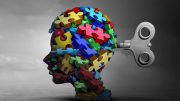
New research has shed light on the link between Attention Deficit Hyperactivity Disorder (ADHD) and mental health, finding that adults with high levels of ADHD symptoms are more likely to experience anxiety and depression than adults with autism. This is a significant finding, as there has been a lack of research on the effects of ADHD on mental health, and people with ADHD have often struggled to access the clinical care they need to cope with their symptoms.
A new UK study shows adults with high levels of ADHD symptoms are more likely to experience anxiety and depression than adults with autism.
Adults with high levels of attention-deficit hyperactivity disorder (ADHD) symptoms are more likely to experience anxiety and depression than adults with high levels of autistic traits, according to new research led by psychologists at the University of Bath in the UK.
This study is the first to show that ADHD is more predictive of poor mental health outcomes in adults than other neurodevelopmental conditions, like autism.
Until now, there has been a dearth of information on the effects of ADHD on poor mental health, with far more research focusing on the impact of autism on depression, anxiety, and quality of life. As a result, people with ADHD have often struggled to access the clinical care they need to cope with their symptoms.
The authors of the study hope their findings will trigger new research into ADHD and ultimately improve the mental health outcomes for people with the condition. ADHD is a neurodevelopmental condition characterized by inattention and/or hyperactivity and impulsivity. The condition is estimated to affect between 3% and 9% of the population.
Blue Monday
Speaking on Blue Monday (January 16) – the third Monday of January, described by some as the gloomiest day of the year – lead researcher, Luca Hargitai, said: “Scientists have long known that autism is linked to anxiety and depression, but ADHD has been somewhat neglected.
“Researchers have also struggled to statistically separate the importance of ADHD and autism for mental health outcomes because of how frequently they occur together.”
Ms. Hargitai, a PhD Researcher at Bath, added: “Our aim was to precisely measure how strongly ADHD personality traits were linked to poor mental health while statistically accounting for autistic traits.”
The new research – a collaborative effort between the Universities of Bath, Bristol, and Cardiff, and King’s College London – is published this week in the prestigious journal Scientific Reports. It comes in the same month that two TV personalities – Johnny Vegas and Sue Perkins – have opened up about their recent diagnoses of ADHD.
“The condition affects many people – both children and adults – and the fact that more people are willing to talk about it is to be welcomed,” said Ms. Hargitai. “The hope is that with greater awareness will come more research in this area and better resources to support individuals in better managing their mental health.”
Overly active, as though driven by a motor
The study used a large, nationally representative sample of adults from the UK population. All participants completed gold standard questionnaires – one on autistic traits, the other on ADHD traits – responding to statements such as “I frequently get strongly absorbed in one thing” and “How often do you feel overly active and compelled to do things, like you were driven by a motor?”
The researchers found that ADHD traits were highly predictive of the severity of anxiety and depression symptoms: the higher the levels of ADHD traits, the more likely a person is to experience severe mental health symptoms. Through innovative analytical techniques, the study authors further confirmed that having more of an ADHD personality was more strongly linked to anxiety and depression than autistic traits.
These results were replicated in computerized simulations with a 100% ‘reproducibility rate’. This showed, with great confidence, that ADHD traits are almost certainly linked to more severe anxiety and depression symptoms in adults than autistic traits.
Shifting the focus of research and clinical practice
Ms. Hargitai said: “Our findings suggest that research and clinical practice must shift some of the focus from autism to ADHD. This may help to identify those most at risk of anxiety and depression so that preventative measures – such as supporting children and adults with the management of their ADHD symptoms – can be put in place earlier to have a greater impact on improving people’s well-being.”
According to Dr. Punit Shah, senior author and associate professor of Psychology at Bath, another important aspect of the new study is that it advances scientific understanding of neurodevelopmental conditions.
“By addressing the shortcomings of previous research, our work provides fresh information about the complex links between neurodiversity and mental health in adults – an area that is often overlooked.
“Further research is now needed to delve deeper into understanding exactly why ADHD is linked to poor mental health, particularly in terms of the mental processes that might drive people with ADHD traits to engage in anxious and depressive thinking.
“At the moment, funding for ADHD research – particularly psychological research – is lacking. This is especially pronounced when you compare it to the relatively high level of funds directed at autism.
“As the evidence becomes clear that ADHD isn’t just a childhood condition but persists throughout life, we must adjust our research agendas to better understand ADHD in adulthood.”
Commenting on the new findings, Dr. Tony Floyd, CEO of ADHD Foundation, The Neurodiversity Foundation, said: “This research demonstrates clear evidence of the increased risks of mental health comorbidities associated with adult ADHD. This is a step towards recognizing the broader impact of unmanaged and untreated ADHD. We hope this research will lead to more research being commissioned in this area. We also hope it will result in changes to the design and delivery of health services.
“The cost implications to the NHS of leaving ADHD untreated, and the need to better train health practitioners in both primary and secondary care, are now more apparent. And of course, there are other costs too that need to be considered – to the health of UK citizens with ADHD and to their family life, employability, and economic well-being. These costs are often hidden but they are considerable.
“This research from Bath University will add to the growing national debate and the business case for a national review of health services for ADHD across a person’s lifespan.”
Reference: “Attention-deficit hyperactivity disorder traits are a more important predictor of internalising problems than autistic traits” by Luca D. Hargitai, Lucy A. Livingston, Lucy H. Waldren, Ross Robinson, Christopher Jarrold and Punit Shah, 16 January 2023, Scientific Reports.
DOI: 10.1038/s41598-022-26350-4








Your illustration with the springs popping out of the man’s head is exceptionally insensitive, even nasty, to those with mental health issues. But hey, as long as you guys are having fun, that’s all that matters.
What a stupid asinine photo in the lede.
Man, some people are overly sensitive. I have ADHD and the picture is more accurate than some might think it is. There are definitely days my head and train of thought feels just like that. I don’t think it’s “stupid”, “insensitive”, or “nasty” at all.
Then think on it some more, Kevin. The photo depicts those with mental health issues as quite literally losing their minds. I’ve known some such patients, and most of them have been very sane, rational people. The photo depicts a 1930’s-era ignorant stereotype.
I’m with you on this one, Kevin. Some days, I don’t have the right words to communicate verbally and I wish people knew that that picture depicts what being inside my head feels like sometimes.
I find it rather interesting that a photo that transmits very little relevent information (as opposed to the data-rich text) is the primary focus of all comments thus far.
Having both ADHD and autism has been, for me (despite the social difficulties), something I would never trade for normality.
we have got to start charging people who tie baby boys to a circumstraint board and skin them alive upon their genitalia. It is so objectively crazy to leave newborn citizens outside the protection of the law.
broadfork communication website (Jesus & the Unabomber)
OF COURSE we adults with ADHD suffer from high levels of depression and anxiety; most of society still thinks that ADHD is nothing more than a label people stick on poorly-parented children, so they can be drugged into submission during school hours. In my experience of trying get treatment after a mid-40s diagnosis, even most physicians still seem to believe it’s a childhood condition that is “outgrown”, as though the neurological wiring of one’s brain magically snaps into place upon reaching the age of majority. ADHD in adults is seen as a character flaw that just needs the application of willpower and a strong work ethic, instead of a lifelong neurological condition that needs to be managed with medical treatment and therapeutic coaching. The often-horrendous intersection of ADHD symptoms and normal female hormonal shifts across the lifespan only adds to the likelihood that girls and women with ADHD will be dismissed as “hysterical” by their assigned providers when seeking care for their ADHD (if it’s even caught) or any other physical or behavioral health problem. Therapists aren’t much better; the ones I’ve had, if they’ve been willing to address my ADHD at all, have mostly wanted to convince me that ADHD is a super-power and that using DBT skills to manage my anxiety (rooted in a 50-year history of repeated executive function failures) will somehow make the negative aspects of my ADHD symptoms disappear. Acknowledging the utter havoc ADHD symptoms wreak on one’s life skills and relationships is to be avoided at all costs. And these researchers can’t imagine why we adults with ADHD are so much more likely to be depressed and anxious? Give me a freaking break.